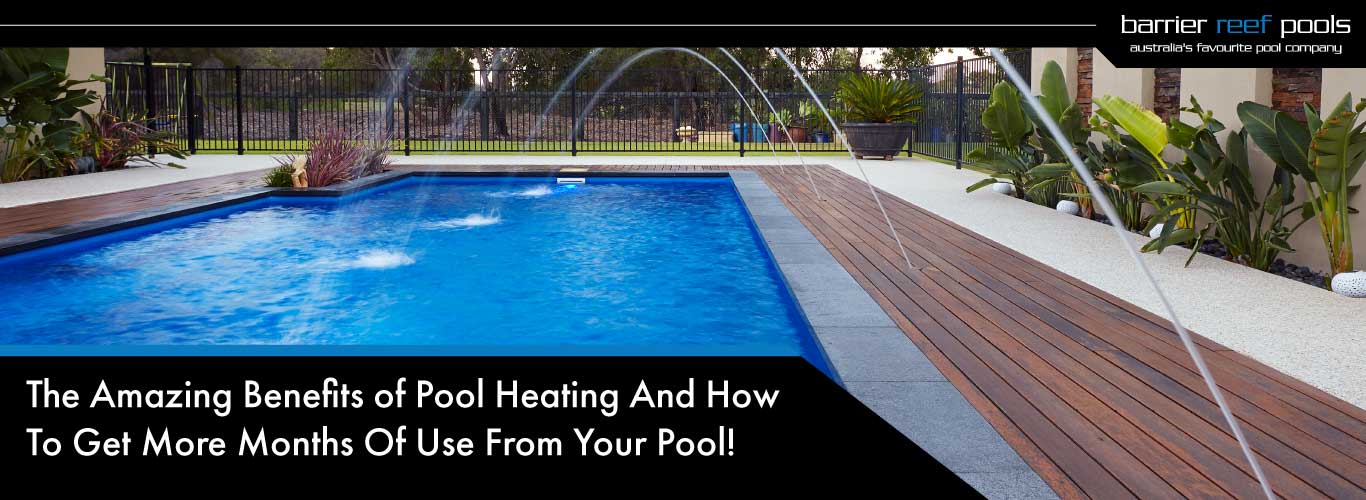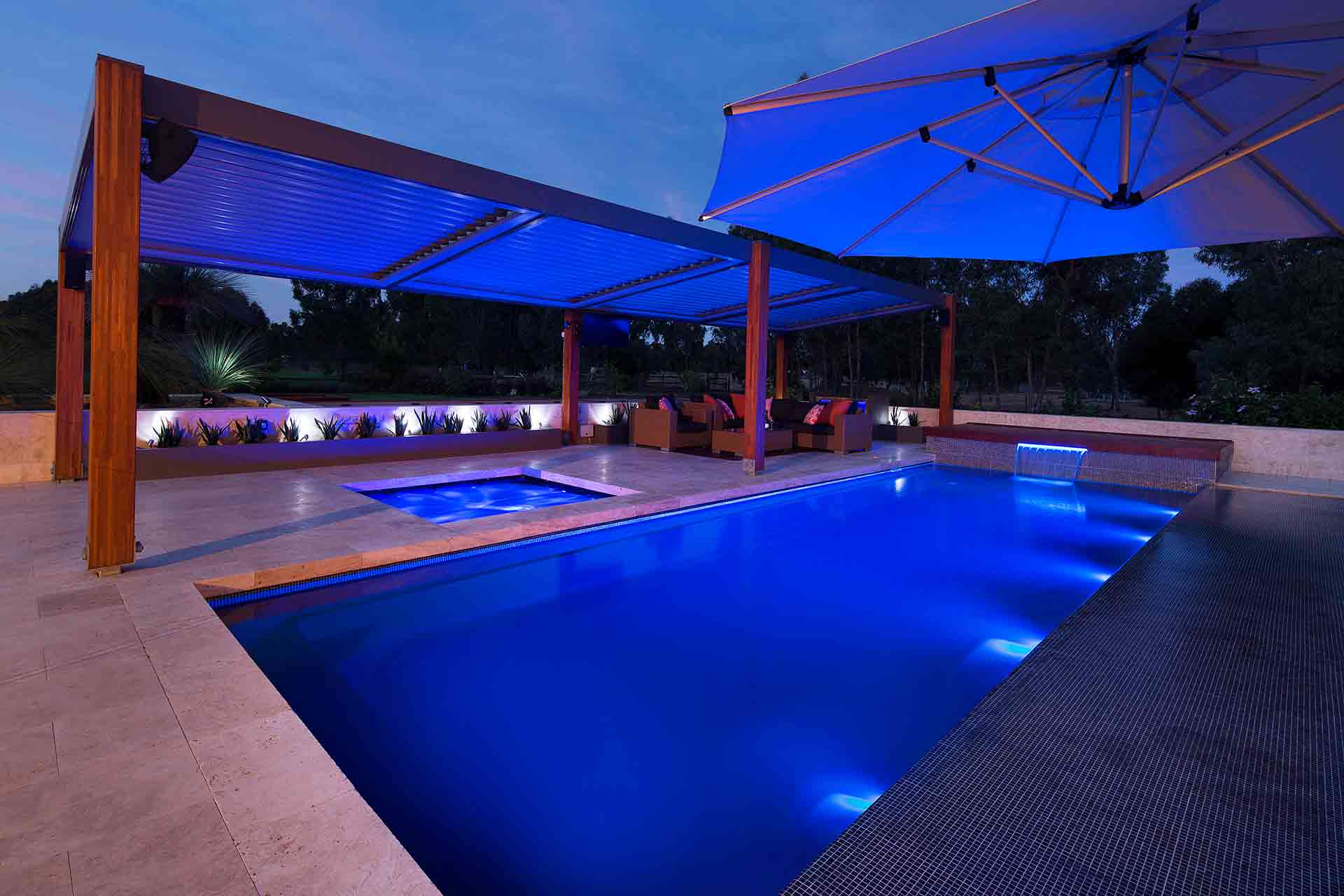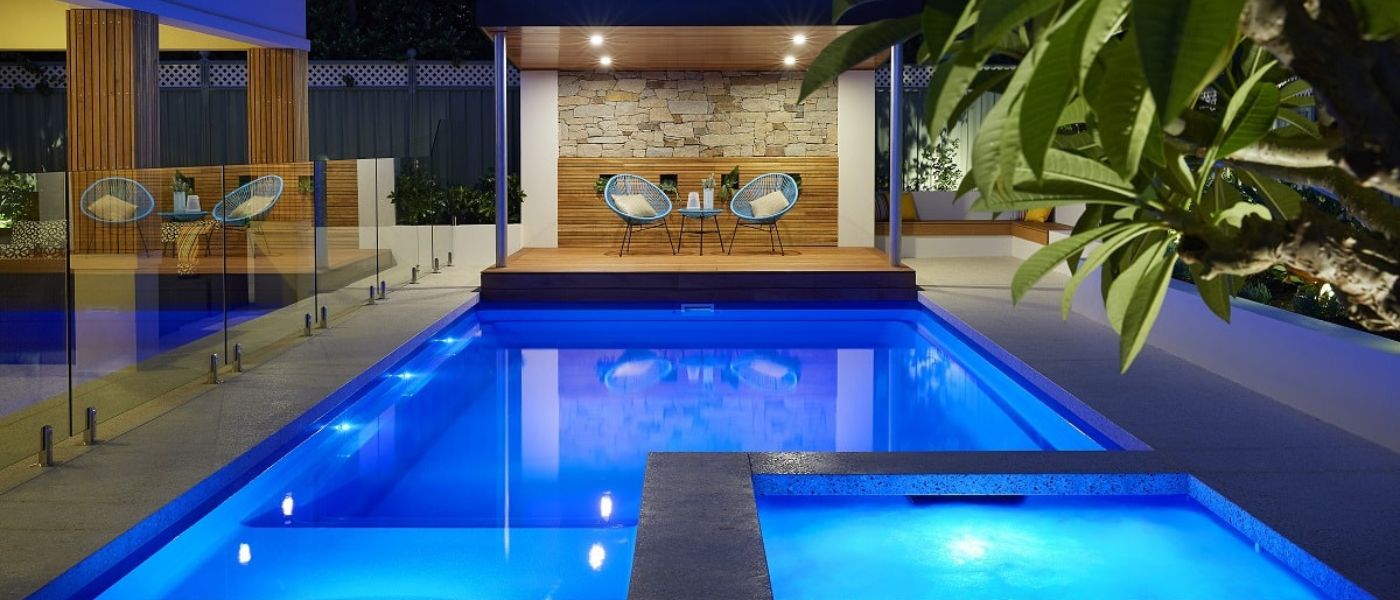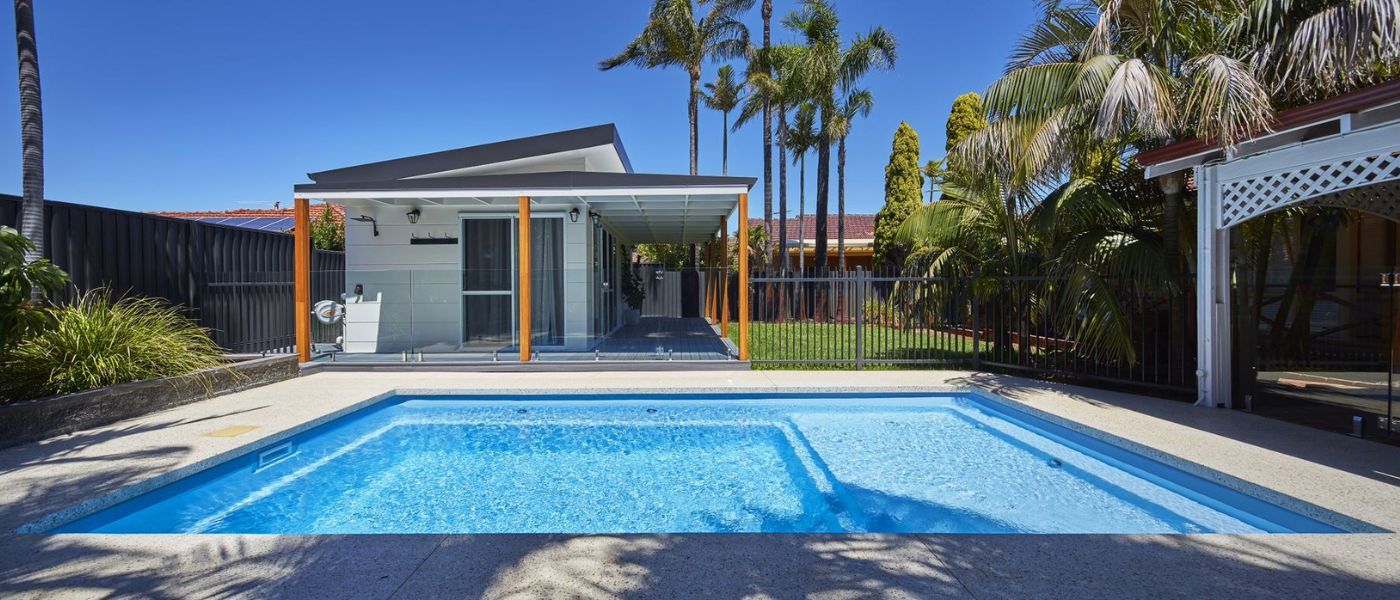The Amazing Benefits of Pool Heating and How You Can Get Many More Months of Swimming in Your Fibreglass Pool
Swimming pools instantly pop in our minds when we are looking for ways to beat the scorching heat. But is a dip in the pool only reserved for hot weather? As unconventional as this may sound, enjoying a swim in warm water during the colder months is just as therapeutic. Why hibernate your pool during the winter when you can get maximum use out of it with a heating system installed? Pool heating systems are a blessing that let you adjust the water temperatures to as warm as you please. Imagine coming home to a relaxing swim that can relax your sore muscles after a long day at work?

If that managed to send you dreaming, this article is for you. We list the 3 main pool heating systems to choose from when planning your unique pool sanctuary.
But before we begin, let’s answer the most pertinent question many prospective pool owners have in their minds.
Do I Even Need A Pool Heating System?
Many people have a misconception that if they live in a sunny climate, the pool will stay warm throughout the year. However, this isn’t true. No matter where you live in Australia, you will require a pool heating system to adjust your water temperature to the desired level. Even if you reside in the warmest regions, your pool temperature during the hottest months would be around 30 degrees. During the colder months, you can expect the pool temperature to drop by more than 10 degrees. On the other hand, if you live in the cooler parts of the country like Melbourne, you can expect pool temperatures somewhere between 16 and 22 degrees during the summer.
On the surface, your pool temperature may seem warm enough to you, but when you get inside, you will realize only the surface gets warm. This is because the sun’s warmth is only enough to heat the surface of the pool and not penetrate it deeply. The temperature below the surface of the pool is usually 3 degrees cooler. So, it makes sense to have a heating system installed for your pool. It can allow you to enjoy year-round swimming and not in the summer months alone that last for 3 to 4 months.
What Pool Heating Systems Are Available?
Listed below are the three main types of pool heating systems for transforming your backyard oasis:

Solar Heaters
These are the most popular and energy-efficient heating equipment in Australia. Solar heaters harness the energy of the sun to keep your pool warm during the colder months. They are eco-friendly and work excellently well in sunny regions where you can get direct sunlight in your backyard. Another reason that makes solar heaters a favourable choice is that they are the least expensive pool heating systems. They end up reducing your electricity bills drastically, which offsets their installation costs. They are a very low-maintenance piece of equipment, so you don’t have to spend too much time cleaning them. In winter can also be a perfect time to install your pool in!
For maximum sun exposure, it is advisable to position the solar panels on your rooftop’s southern section. This way, it can increase the temperature of your pool by up to 2 degrees during sunny days. While solar heaters have their benefits, they also have a minor drawback that you may have to work around. Since they are powered by the sun, they may take longer to absorb energy when it is cloudy. This means it can take anywhere between 4 and 6 hours of sun exposure for your pool to start heating at the required levels.
Electric Heaters
Electric heat pumps are another popular choice for pool heating amongst pool owners. They collect the heat from the surrounding air and run it over a heat exchanger and an evaporator coil. They are designed to circulate the pool water through a heating tank before it can be pumped back into the swimming pool. The way through which electric heaters reuse energy makes them a cost-effective option as compared to other pool heating systems.
If you reside in a region where natural sunlight is scarce most of the year, electric heaters are an apt choice for you. They can function well even if the weather is cloudy as they run on air and electrical power source. Compared to solar heaters, electric heat pumps can heat a pool more quickly.
However, there is a slight negative to using an electric heater. You need a minimum of a 40-amp breaker to run it. This means you could be staring at an electricity bill on the higher side. Plus, unlike solar heaters, electric heaters are not eco-friendly equipment. If you are environmentally conscious, you might want to think twice before you invest in an electric heater.

Gas Pumps
Planning to have a pool spa combination in your backyard? A gas pump is the ideal heating system for you. They are used for hydrotherapy to rejuvenate your body and offer healing benefits. So, the pool water should be kept at the right temperature consistently to have the maximum benefit. Gas pumps don’t require you to depend on the sun or the air temperature to heat the pool water. They work by using natural gas or propane to heat the water quickly. A major con with using gas pumps for heating your pool is that they may have limited lifespans. Plus, they aren’t eco-friendly either.
However, if you don’t plan to regularly use your pool in the colder months but may use the pool on a whim, gas pumps are the right choice. They save you the trouble of going through electric heaters or solar installations that are more permanent heating systems.
So, Which Pool Heating System Is Right for Me?
Here are some factors that can help you decide the right heating system for your pool:
- Budget: Make sure you factor in the long-term maintenance and operational costs as well before you finalize a heating system. For solar panels, the initial installation costs can be higher, but they are cost-effective in the long run. For gas pumps, consider the fuel requirements, and think of the electricity consumption for electric heaters.
- Size of your pool: A larger pool requires a stable heating system for consistent warm water temperatures. Based on your climate and the location of your residence, you can choose the right pool heating system.
- Frequency of use: If you are regularly using your pool during the colder months, solar panel installations are a smart choice. Also, if you live in a sunny area, they give you the best value for money. However, for occasional use, their substantial initial outlay may not make sense. Gas pumps work well for such cases as they heat on demand.

Wrapping Up
We hope this insight into different pool heating systems was helpful to you. Based on your budget and preference, you can make an informed decision. If you are still unsure about which pool heating system may work best for you, give us a call. Our efficient team of pool designers will get in touch with you and happily answer any queries you may have regarding pool heating systems.
Give us a call TODAY!
